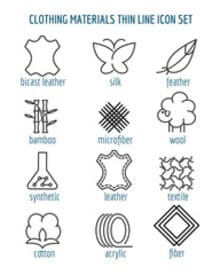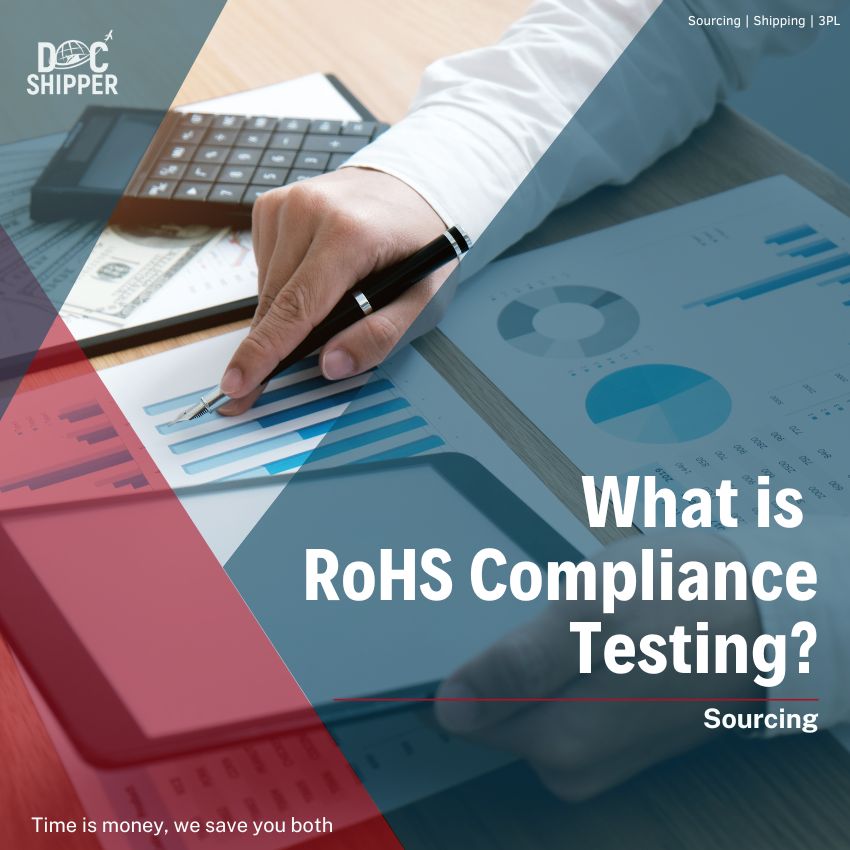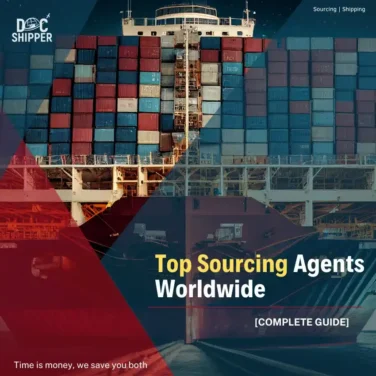RoHS (Restriction of Hazardous Substances) Compliance Testing is an essential process for ensuring product safety and environmental responsibility. In this comprehensive guide, we will delve into the details of RoHS Compliance Testing, its significance, and how it can benefit your business. Whether you are a manufacturer, importer, or distributor, understanding and adhering to RoHS regulations is crucial to avoid penalties and maintain customer trust. With our expert RoHS testing services, you can rely on us to handle the entire compliance process, freeing you from concerns and allowing you to focus on your core business operations.
DocShipper Tip
DocShipper alert: Simplify your journey to RoHS compliance with Docshipper’s comprehensive testing services. Our experienced team will guide you through the entire process, ensuring that your products meet the required standards and regulations. Trust our expertise and attention to detail to make your products safe, environmentally friendly, and ready for the global market. Contact us today to streamline your RoHS compliance and take your business to new heights.
Understanding RoHS Compliance
RoHS Compliance means adhering to regulations that limit the use of harmful substances in electronic and electrical equipment (EEE). These regulations restrict the presence of substances like lead, mercury, cadmium, and certain flame retardants in electronic products. By following RoHS guidelines, companies ensure that their products are safe, environmentally friendly, and free from hazardous materials. This compliance is important for consumer safety and contributes to a cleaner and healthier environment.
The Importance of RoHS Compliance Testing
RoHS Compliance Testing plays a crucial role in ensuring that your products meet the regulatory requirements outlined by the RoHS directive. Through meticulous testing, you can verify the absence or controlled levels of hazardous substances in your products, thereby demonstrating compliance with the regulations. Compliance testing helps protect consumer health, safeguards the environment, and mitigates potential legal and reputational risks for your business. Moreover, it instills confidence in customers, showcasing your commitment to producing safe and environmentally conscious products.
Which products are concerned by RoHS compliance?
A wide range of electronic and electrical products are concerned with RoHS compliance. Here is a list of some common examples:
![]()
Consumer Electronics:
- TVs (Television sets)
- Computers (Desktops, laptops, tablets)
- Smartphones and mobile devices
- Audio and video equipment
- Cameras and camcorders
- Gaming consoles

Household Appliances:
- Refrigerators and freezers
- Washing machines and dryers
- Dishwashers
- Microwave ovens
- Air conditioners
- Vacuum cleaners
![]() Medical Devices:
Medical Devices:
- Monitoring and diagnostic equipment
- Imaging devices (X-ray machines, MRI scanners)
- Surgical instruments
- Dental equipment
- Laboratory analyzers
![]() Telecommunications Equipment:
Telecommunications Equipment:
- Telephone systems and handsets
- Modems and routers
- Network switches
- Wireless devices (Bluetooth headsets, Wi-Fi routers)
- Optical communication equipment
![]() Lighting Products:
Lighting Products:
- LED bulbs and lamps
- Fluorescent tubes and fixtures
- Streetlights and outdoor lighting
- Decorative and commercial lighting
 Electronic Toys and Children’s Products:
Electronic Toys and Children’s Products:
- Remote-controlled vehicles and drones
- Interactive toys
- Educational tablets and devices
- Battery-operated toys
How do I know if a material is RoHS compliant?
Determining if a material is RoHS compliant is crucial to ensure its adherence to the regulations. There are several ways to verify the compliance of a material or product.
 One common approach is to obtain test reports from accredited laboratories. These reports provide detailed information about the presence and concentration of restricted substances such as lead, mercury, cadmium, and others in the material. Testing is typically conducted using specialized equipment and techniques to accurately measure the substance levels. By reviewing these test reports, you can assess whether the material meets the RoHS compliance requirements.
One common approach is to obtain test reports from accredited laboratories. These reports provide detailed information about the presence and concentration of restricted substances such as lead, mercury, cadmium, and others in the material. Testing is typically conducted using specialized equipment and techniques to accurately measure the substance levels. By reviewing these test reports, you can assess whether the material meets the RoHS compliance requirements.
Another way to determine RoHS compliance is to request compliance statements or certificate of conformance from manufacturers and suppliers. These statements provide assurance that the material has been tested and complies with RoHS regulations. Reputable manufacturers and suppliers often have well-documented processes in place to ensure the compliance of their products. By requesting and reviewing these compliance statements, you can gain confidence in the RoHS compliance of the material.
For example, if you’re considering purchasing electronic components for your product, you can request a RoHS compliance declaration from the supplier, stating that the components are free from restricted substances such as lead, mercury, and cadmium. Moreover, you can see if the product that you are interested in has one of those logos:
![]()
This means that the product is certified by RoHS, that the supplier is reliable, and it will help ensure that the materials you use are safe and compliant.
DocShipper Alert
DocShipper Alert: Ensure your products meet RoHS requirements effortlessly with Docshipper. Our expert team will handle all aspects of the compliance testing process, from sample collection to chemical analysis. Trust our expertise to simplify your journey and provide you with peace of mind. Contact us today to learn more!
The RoHS Compliance Testing Process
RoHS Compliance Testing involves several crucial steps to ensure that your products meet the regulatory requirements. Let’s take a closer look at each stage of the testing process.
1- Determining Applicable RoHS Requirements
The first step in the RoHS Compliance Testing process is to determine the specific RoHS requirements that apply to your products. This involves identifying the relevant regulations based on factors such as product category, target market, and applicable standards. Understanding the specific substances and concentration limits that need to be tested is essential for accurate compliance assessment.
2- Sample Collection and Preparation
Once the applicable RoHS requirements are identified, the next step is to collect representative samples of your products for testing. It is crucial to ensure that the samples are collected following proper sampling procedures, considering factors such as batch variations and product complexity. Adequate sample preparation, including disassembly or surface cleaning, may be necessary to access the components or materials that need to be analyzed.
3- Chemical Analysis and Testing
In this phase, the collected samples undergo rigorous chemical analysis and testing to determine the presence and concentration of restricted substances. Various testing methods, such as X-ray fluorescence (XRF) spectrometry, inductively coupled plasma (ICP) spectroscopy, and chromatography, are employed to identify and quantify the hazardous substances in the samples. The testing process follows internationally recognized standards and guidelines to ensure accurate and reliable results.
DocShipper Info
DocShipper info : Don’t stress about RoHS compliance testing – let us take care of it for you. With Docshipper, you can trust our experienced team to handle all the necessary steps, from determining requirements to conducting chemical analysis. Save time and effort by relying on our expertise. Contact us now to get started!
Benefits of RoHS Compliance Testing
RoHS Compliance Testing offers various benefits that go beyond regulatory requirements. Let’s explore some of the key advantages.
 1- Ensuring Product Safety and Quality
1- Ensuring Product Safety and Quality
RoHS Compliance Testing plays a crucial role in ensuring the safety and quality control of your products. By testing for hazardous substances such as lead, mercury, cadmium, and other restricted materials, you can identify and eliminate potential risks to human health and the environment. This process helps prevent product failures, malfunctions, and health hazards, ultimately enhancing the overall safety and reliability of your products.
2- Complying with Regulatory Standards
 Complying with RoHS regulations is not only a legal obligation but also a prerequisite for market access. RoHS Compliance Testing helps you demonstrate that your products meet the necessary environmental standards and regulations. By achieving compliance, you can avoid penalties, legal complications, and barriers to entry in both domestic and international markets.
Complying with RoHS regulations is not only a legal obligation but also a prerequisite for market access. RoHS Compliance Testing helps you demonstrate that your products meet the necessary environmental standards and regulations. By achieving compliance, you can avoid penalties, legal complications, and barriers to entry in both domestic and international markets.
3- Enhancing Customer Trust and Market Access
RoHS Compliance is increasingly becoming a requirement for customers and businesses across various industries. By obtaining RoHS certification, you can enhance your brand reputation and build trust with your customers. Meeting regulatory standards indicates your commitment to environmental responsibility and product safety. Furthermore, being RoHS compliant opens doors to new markets, improves business opportunities, and increases your competitive advantage.
DocShipper Tip
Docshipper Tip: Don’t let RoHS compliance testing become a burden. With our comprehensive services, we make it easy for you to ensure compliance with RoHS regulations. Our expert team will guide you through the process, from determining applicable requirements to conducting a thorough chemical analysis. Trust us to simplify the journey and provide you with peace of mind. Contact us today to streamline your RoHS compliance efforts.
FAQ | What is RoHS Compliance Testing?
Read more
Looking for more? These articles might interest you:
DocShipper info: Do you like our article today? For your business interest, you may like the following useful articles :
Need Help with Logistics or Sourcing ?
First, we secure the right products from the right suppliers at the right price by managing the sourcing process from start to finish. Then, we simplify your shipping experience - from pickup to final delivery - ensuring any product, anywhere, is delivered at highly competitive prices.


Fill the Form
Prefer email? Send us your inquiry, and we’ll get back to you as soon as possible.
Contact us








